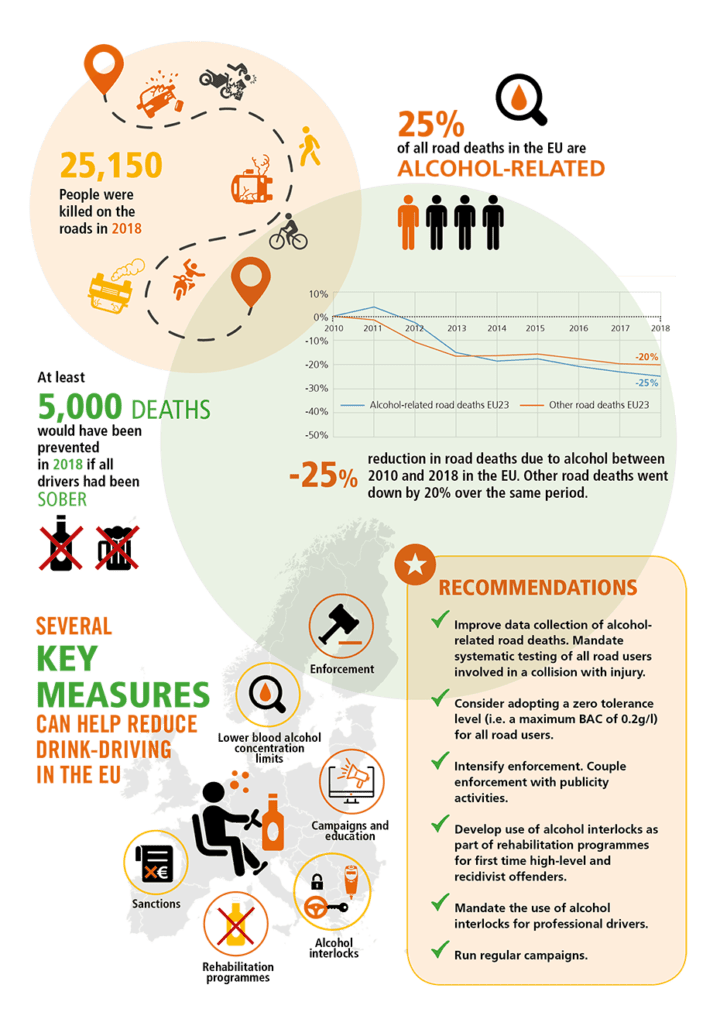EU: Zero Tolerance Could Prevent 5000 Alcohol-Related Road Deaths
A new report by the European Transport Safety Council (ETSC) says zero tolerance for driving under the influence of alcohol could prevent up to 5000 alcohol-related road traffic deaths.
The EU has recently set a target to reduce deaths and serious injuries on the road by half by 2030. According to estimates:
- A quarter of the 25,000 EU road deaths each year are likely to be linked to alcohol, according to European Commission estimates.
- Around 2,654 people were officially recorded killed in alcohol-related collisions in 23 EU countries in 2018, according to the new ETSC report. However, true figures are likely higher due to under reporting.
The current state of Blood Alcohol Content (BAC) limits in the EU:
- Only 7 out of 28 EU countries have a standard Blood Alcohol Concentration (BAC) limit of 0.2 g/l or below.
- 19 have a limit of 0.5,
- Lithuania has a limit of 0.4.
- The UK has the highest standard limit of 0.8, though Scotland has set a lower limit of 0.5.
- Many countries also set lower limits for professional and/or novice drivers.
BAC limit of 0.2 g/l or below are effectively equivalent to zero tolerance, while still allowing for consumption of certain medicines, or drinks marketed as alcohol free.
ETSC Recommendations to reduce alcohol related road traffic death
- Introducing zero-tolerance for driving under the influence in 2020.
- Require the fitment of alcohol interlock devices in professional vehicles such as lorries, coaches and vans as well as requiring their use by recidivist drink-driving offenders as well as first time high-level offenders.
- Improve data collection of alcohol-related deaths by, for example, mandating systematic alcohol testing of all road users involved in a collision with injury.
- Step up enforcement and introduce national targets for the number of roadside checks.
According to the report, Austria, Belgium, Denmark, Finland, France and Sweden are among the countries that offer alcohol interlock offender programmes today while France and Finland have legislated the use of alcohol interlocks for some categories of professional vehicles such as school buses.
Tackling of deaths from driving under the influence of alcohol is varied across countries. 13 EU countries are reducing these deaths faster than others while, the UK, Cyprus, Belgium, Estonia, Hungary, Sweden and Slovakia are tackling the issue much more slower comparatively.

